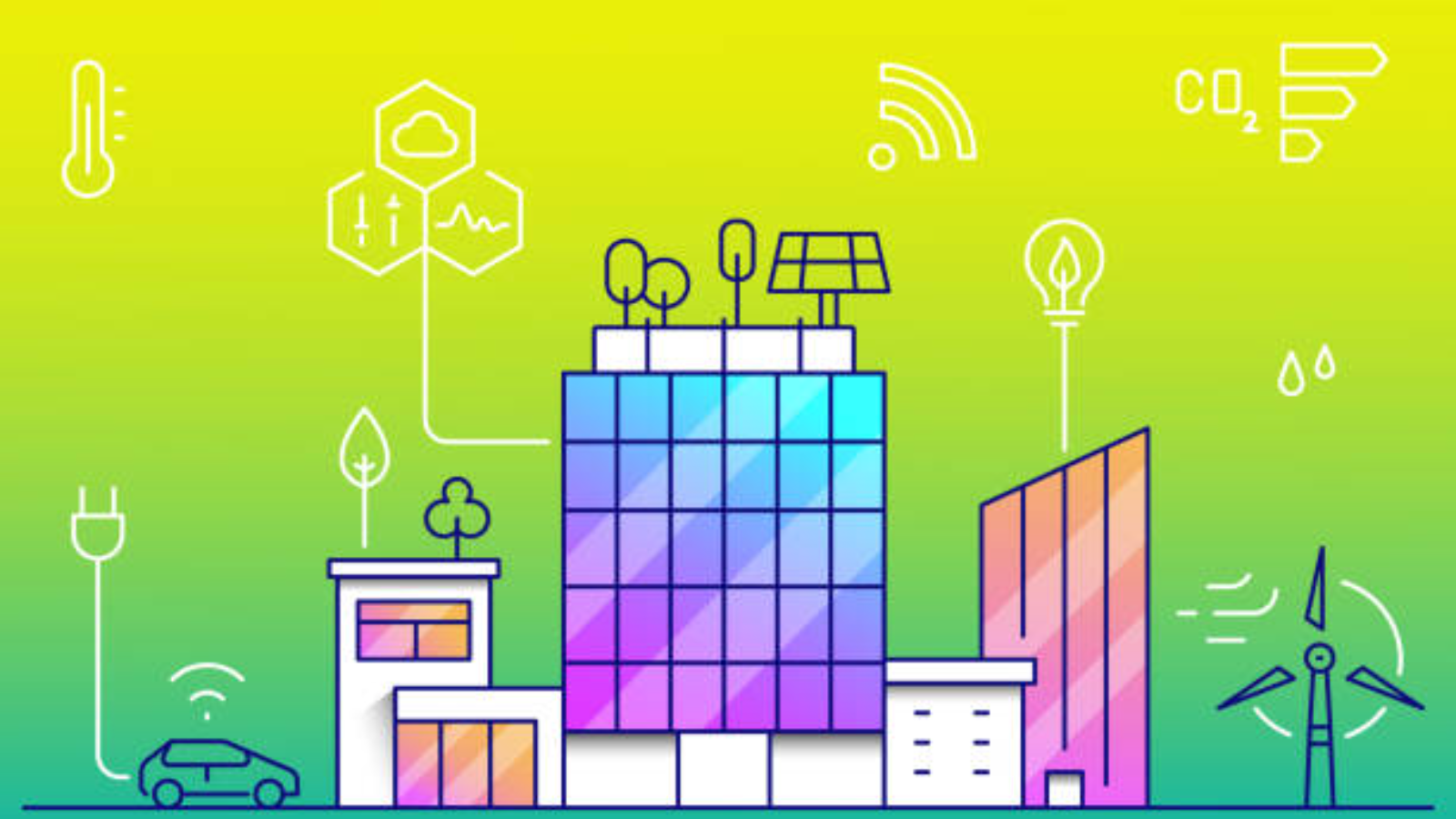In this Article
Introduction
As urbanization continues to rise, cities around the world are seeking innovative ways to enhance the quality of life for their residents while addressing environmental and infrastructural challenges. Two prominent concepts in this discourse are “smart cities” and “sustainable cities.” While both aim to create better living conditions, they approach the goal from different angles.
This article explores the meaning of a smart city in comparison to a sustainable city, highlighting their unique characteristics, shared goals, and the potential for integration.
Smart City Meaning vs. Sustainable City Meaning: A Comparative Analysis
Smart City Meaning
A smart city leverages advanced technologies and data analytics to optimize urban operations, improve public services, and enhance the overall quality of life. Key characteristics include:
- Technological Integration: Smart cities utilize Internet of Things (IoT) devices, sensors, and data analytics to monitor and manage urban infrastructure in real time. This technological integration enables efficient traffic management, smart lighting, and intelligent waste management. For instance, smart traffic systems can reduce congestion by adjusting traffic signals based on real-time traffic data, while smart lighting systems can adjust streetlight intensity based on pedestrian and vehicular movement.
- Data-Driven Decision-Making: In smart cities, we analyze data collected from various sources to inform urban planning and policy decisions. This contrasts with traditional decision-making processes that may rely on historical data or anecdotal evidence. For example, we use data from environmental sensors to track air quality and inform public health policies. Additionally, we apply data analytics to optimize public transportation routes based on usage patterns.
- Citizen Engagement: Smart cities promote active citizen engagement by providing digital platforms for residents to participate in decision-making processes and access public services. This fosters a sense of community and ensures that residents’ voices are heard. Mobile apps and online portals allow citizens to report issues, provide feedback, and stay informed about city initiatives.
Sustainable City Meaning
A sustainable city prioritizes environmental stewardship, resource efficiency, and social equity to create a balanced and resilient urban environment. Key characteristics include:
- Environmental Sustainability: Sustainable cities focus on reducing their environmental footprint through the use of renewable energy sources, green building practices, and efficient waste management systems. This approach aims to minimize pollution and conserve natural resources. For instance, sustainable cities may implement solar panels, wind turbines, and green roofs to reduce reliance on fossil fuels and enhance energy efficiency.
- Social Equity: Sustainable cities aim to create inclusive and equitable communities by addressing the needs of all residents, including marginalized and vulnerable populations. This involves providing affordable housing, accessible public services, and opportunities for economic participation. Initiatives may include mixed-income housing developments, universal healthcare access, and job training programs.
- Resilience: Sustainable cities are designed to withstand and adapt to environmental, social, and economic challenges. This includes planning for climate change impacts, disaster preparedness, and economic diversification. Resilient cities may invest in flood defenses, emergency response systems, and diverse economic sectors to mitigate risks and enhance adaptability.
Comparative Analysis
While smart cities and sustainable cities share the common goal of improving urban living, they differ in their primary focus and approach. However, we integrate these concepts to create a holistic urban development strategy.
- Technological Integration vs. Environmental Sustainability: Smart cities prioritize technological solutions to optimize urban operations and enhance public services. In contrast, sustainable cities focus on environmental sustainability and resource efficiency. Integrating these approaches can lead to smart, sustainable cities that leverage technology to achieve environmental goals. For example, smart energy grids can optimize the use of renewable energy sources, enhancing both efficiency and sustainability.
- Data-Driven Decision-Making vs. Social Equity: Smart cities use data analytics to inform decision-making processes, while sustainable cities prioritize social equity and inclusivity. Combining these approaches ensures making data-driven decisions with a focus on social equity and the well-being of all residents. For instance, data analytics can identify underserved communities and inform targeted interventions to address disparities.
- Citizen Engagement vs. Resilience: Both smart and sustainable cities emphasize the importance of citizen engagement. However, sustainable cities also prioritize resilience to environmental and economic challenges. Integrating smart technologies can enhance citizen engagement and resilience planning, creating more adaptive and responsive urban environments. For example, digital platforms can facilitate community participation in resilience planning and emergency response efforts.
Conclusion
The concepts of smart cities and sustainable cities represent different yet complementary approaches to urban development. Smart cities leverage technology to optimize urban operations and improve public services, while sustainable cities focus on environmental stewardship, resource efficiency, and social equity. By integrating these approaches, cities can create smart, sustainable, and resilient urban environments that enhance the quality of life for all residents.
How Can We Help?
At AlphaX, we help cities navigate the complexities of urbanization by offering comprehensive solutions that integrate smart and sustainable city principles. To explore how AlphaX can help your city become smarter and more sustainable, visit our contact page.
References
Related Blog Posts
How Smart Cities Connect: Getting Started with Edge AI and IoT Technology
How to Get Started with Edge AI and IoT Technologies in Smart Cities: Overcoming Integration Challenges In recent years, the concept of smart cities has evolved from a futuristic Read More
5 Step Strategy: Ensuring Security and Privacy in 15-Minute Smart Cities
Introduction Ensuring security and privacy in 15-minute smart cities is a critical challenge as urban areas become increasingly connected through IoT and edge AI technologies. These cities aim to Read More
What is a smart city and the challenge of legacy systems
How to Get Started with Integrating Legacy Systems in Smart Cities Smart cities are transforming urban landscapes by leveraging technology to improve the quality of life for residents. However, Read More




